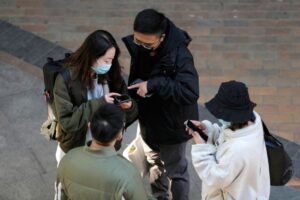Besides launching hub, WhatsApp also donates $1m to International Fact-Checking Network for Coronavirus Facts Alliance

Facebook-owned mobile instant messenger and social media service WhatsApp on March 18 announced the launch of two initiatives in support of the global fight against the coronavirus pandemic: the global launch of the ‘WhatsApp Coronavirus Information Hub’ in partnership with the World Health Organization and UNDP as well as a $1m donation to the Poynter Institute’s International Fact-Checking Network (IFCN).
The hub launched at whatsapp.com/coronavirus to provide simple, actionable guidance for health workers, educators, community leaders, nonprofits, local governments and local businesses that rely on WhatsApp to communicate. The site also offers general tips and resources for users around the world to reduce the spread of rumors and connect with accurate health information.
While people need to spend time apart, WhatsApp will continue to provide a simple, reliable, and secure way for people to communicate. These recommendations provide quick guidance on how small groups can make the most of WhatsApp features and will be distributed by UNDP to those coordinating local efforts. In addition, WhatsApp is working with UNICEF and WHO to provide messaging hotlines for people around the world to use directly. These hotlines will be listed on the WhatsApp Coronavirus Information Hub.
WhatsApp has worked with a number of national health ministries and NGOs to provide factual information to users via text in countries including Singapore, Israel, South Africa, Brazil, and Indonesia. As these efforts continue, the hub will be updated with the latest resources.
WhatsApp’s $1m grant to the IFCN will support fact-checking for the ‘Coronavirus Facts Alliance’ which spans more than 100 local organizations in at least 45 countries. Over the last year, WhatsApp has worked to bring over a dozen fact-checking organizations directly onto WhatsApp so they can crowdsource and report on rumors that may be circulating on various messaging services including WhatsApp or SMS. The grant will support training to use the advanced features within WhatsApp Business, including the WhatsApp Business API. Expanding the presence of these IFCN certified fact-checking organizations will help ensure local communities are aware and responding to potential harmful rumors.
WhatsApp Head Will Cathcart comments, ““We know that our users are reaching out on WhatsApp more than ever at this time of crisis, whether it’s to friends and loved ones, doctors to patients, or teachers to students. We wanted to provide a simple resource that can help connect people at this time.
We are also pleased to be able to partner with the Poynter Institute to help grow the amount of fact-checking organizations on WhatsApp and to support their life saving work to debunk rumors. We will also continue to work directly with health ministries around the world for them to provide updates right within WhatsApp.”
IFCN Director Baybars Orsek said, “The timely donation from WhatsApp will help the fact-checks published by the CoronaVirusFacts Alliance to reach wider audiences and, in consequence, help people sort facts from fiction during this avalanche of information that WHO called an ‘infodemic’.”
Also Achim Steiner, Administrator of the United Nations Development Programme (UNDP) told, “Getting up to date information about COVID-19 to local communities around the world is a critical piece of the international community’s efforts to stem the spread of the virus,” said Achim Steiner, Administrator of the United Nations Development Programme (UNDP). “Partnerships with private sector companies like WhatsApp will help get this vital, real time information from the World Health Organization and local health officials to billions of users around the globe.”
The International Fact-Checking Network also looks forward to discovering ways to understand the spread of health related hoaxes on WhatsApp in different formats and to make tools available for fact-checkers to detect and debunk misinformation one the messaging app.
Read more here








